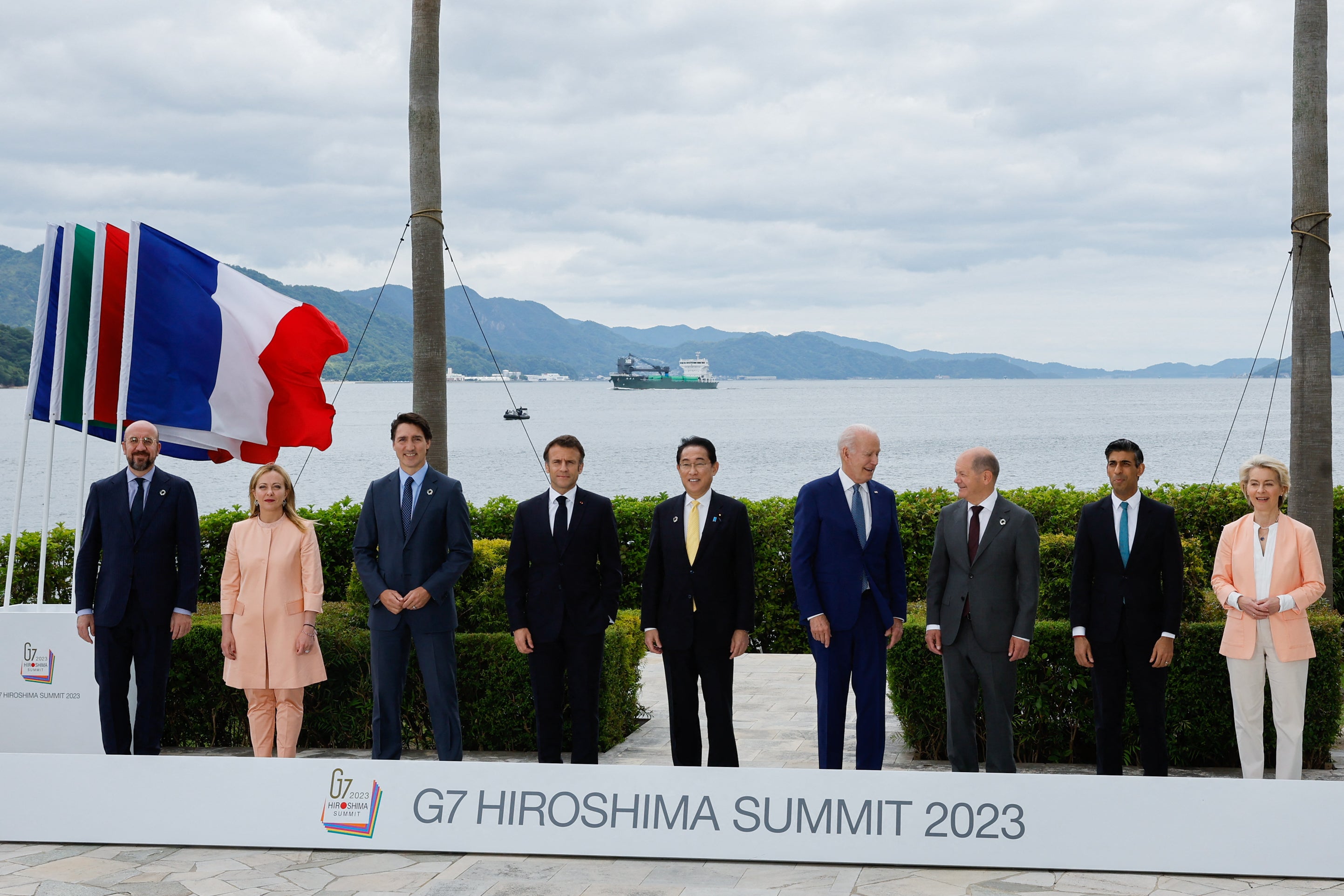G7 flags China’s ‘accelerating nuclear arsenal’ growth as Zelensky arrives in Hiroshima
‘A growing China that plays by international rules would be of global interest’

Your support helps us to tell the story
From reproductive rights to climate change to Big Tech, The Independent is on the ground when the story is developing. Whether it's investigating the financials of Elon Musk's pro-Trump PAC or producing our latest documentary, 'The A Word', which shines a light on the American women fighting for reproductive rights, we know how important it is to parse out the facts from the messaging.
At such a critical moment in US history, we need reporters on the ground. Your donation allows us to keep sending journalists to speak to both sides of the story.
The Independent is trusted by Americans across the entire political spectrum. And unlike many other quality news outlets, we choose not to lock Americans out of our reporting and analysis with paywalls. We believe quality journalism should be available to everyone, paid for by those who can afford it.
Your support makes all the difference.The Group of Seven nations took to the world stage to warn against China’s “accelerating build-up of its nuclear arsenal” but added that the rich nations cohort is not turning inwards, as the biggest global leaders met in Hiroshima on Saturday with the war in Ukraine playing in the backdrop.
China’s “accelerating build-up of its nuclear arsenal without transparency (or) meaningful dialogue poses a concern to global and regional stability”, the G7 leaders said in a joint statement, taking aim at Beijing and Moscow separately.
“We are not decoupling or turning inwards. At the same time, we recognise that economic resilience requires de-risking and diversifying,” the statement said.
It added that the nations are not looking to design a policy to harm China or hinder its economic progress.
“A growing China that plays by international rules would be of global interest.”
The communique comes as the G7 nations expressed their concerns about China’s rising position in the international trade market cemented by its role in supply chains in everything from semiconductors to critical minerals. By issuing the statement, G7 is looking to chart a common strategy towards future dealings with the second-largest global economy.
The G7 members — the US, Japan, Germany, France, Britain, Italy and Canada — issued a separate statement on economic security warning countries to use trade as a weapon with consequences.
The global powers have also underlined challenges posed by the Russian invasion of Ukraine and tensions with China over Taiwan and economic security.
The statement from the group is aimed at outlining new projects in the G7 global infrastructure development initiative looking to provide an alternative to China’s investment dollars.
The communique came shortly after Ukrainian president Volodymyr Zelensky touched down in Hiroshima after being flown into Asia on a French government aircraft.
Mr Zelensky was seen wearing his customary olive green fatigues as he landed in Hiroshima and quickly moved to a waiting car.
“Japan. G7. Important meetings with partners and friends of Ukraine,” he wrote in a tweet shortly after.
World leaders of the seven most powerful nations are treading a balancing act in Hiroshima as they look to address a raft of global worries demanding urgent attention, including climate change, AI, poverty and economic instability, nuclear proliferation and, above all, the war in Ukraine.
China, the world’s second-largest economy, features at the nexus of many of those concerns.
The group has also rolled out a new wave of global sanctions on Moscow as well as plans to enhance the effectiveness of existing financial penalties meant to constrain president Vladimir Putin’s war effort.
Almost 15 months into the war, Russia is now the most-sanctioned country in the world, but there are questions about its effectiveness.
“Our support for Ukraine will not waver,” the G7 leaders said in a statement released after closed-door meetings. They vowed “to stand together against Russia’s illegal, unjustifiable and unprovoked war of aggression against Ukraine.”
“Russia started this war and can end this war,” they said.
The group is also set to discuss efforts to strengthen the global economy and address rising prices that are squeezing families and government budgets around the world, particularly in developing countries in Africa, Asia and Latin America.




Join our commenting forum
Join thought-provoking conversations, follow other Independent readers and see their replies
Comments